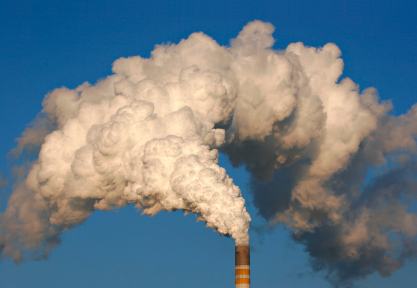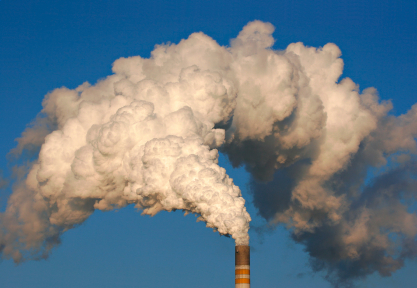In 1865, William Stanley Jevons pointed out something paradoxical: Historically, the better we get at efficiently using a resource, the more of that resource we use. Known as the “Jevons paradox,” it’s been the elephant in the room for advocates of energy efficiency, who cite it as one of the core technologies that could reduce the carbon intensity of our industrial civilization. But perhaps it’s time to lay this “rule” to rest, says Energy Circle Founder Peter Troast, who points out that increased resource usage has always taken place in the context of ever-increasing supplies of energy and an expanding economy.
In the same vein, a new study from researchers at Stanford suggests the appetite for travel has reached saturation in the developed world, meaning further gains in transportation energy efficiency “could leave the absolute levels of [transport-related greenhouse gas] emissions in 2020 or 2030 lower than today.”
Meanwhile, oil prices are creeping back up, leading the chief economist at the International Energy Agency to warn that the price of a barrel of crude imperils the current global economic recovery.
 EPA’s new climate rules spur intense debate: The industry response to the U.S. Environmental Protection Agency’s forthcoming regulation of greenhouse gases under the Clean Air Act has led to a war of words at the National Journal, where representatives from the National Mining Association and the George C. Marshall Institute duke it out with the likes of Jon A. Anda of UBS Securities, who says EPA regulations “may hurt today’s economy, but not materially because de-carbonization will come gradually over decades, new energy technologies tend to be more domestic and labor-intensive, and U.S. investment in long-lived plant and equipment is already stymied by policy uncertainty.”
EPA’s new climate rules spur intense debate: The industry response to the U.S. Environmental Protection Agency’s forthcoming regulation of greenhouse gases under the Clean Air Act has led to a war of words at the National Journal, where representatives from the National Mining Association and the George C. Marshall Institute duke it out with the likes of Jon A. Anda of UBS Securities, who says EPA regulations “may hurt today’s economy, but not materially because de-carbonization will come gradually over decades, new energy technologies tend to be more domestic and labor-intensive, and U.S. investment in long-lived plant and equipment is already stymied by policy uncertainty.”
Sen. Kay Bailey Hutchison (R-Texas) equates the new regulations to “a new gas tax.”
“The fight [over EPA’s new climate rules] has gotten so ugly that the EPA took the unprecedented step this month of announcing it will directly issue greenhouse gas permits to Texas industries beginning in January after the state openly refused to comply with new federal regulations.” Predictably, the tussle has since been cited by a member of the Texas Nationalist Movement as the latest, best reason for the state to secede.
The New York Times says the new regulations carry significant political risk to the current administration.
Kate Sheppard of Mother Jones reports Rep. Fred Upton (R-Mich.) — the incoming chair of the powerful House Energy and Commerce Committee, which is currently formulating ways to block the rules — used to advocate for action on global warming, but has since expunged his website (and public pronouncements) of this view.
White House Science Advisor John Holdren thinks forthcoming congressional hearings on climate science will be “educational“:
I think in the new Congress, there will unquestionably be hearings on climate science — I think those hearings are going to end up being educational. I think we’ll probably move the opinions of some of the members of Congress who currently call themselves skeptics, because I think a lot of good scientists are going to come in and explain very clearly what we know and how we know it and what it means, and it’s a very persuasive case.
Related: Climate change is still a national security threat.
Will it be centuries before warming-enhanced storm damage is quantifiable?: A controversial new paper argues that extracting the signal of climate change effects from the noise of variable weather in order to put a price tag on global warming could take centuries, but Climate Progress cites a report by the reinsurer Munich Re, “Large number of weather extremes as strong indication of climate change,” as a counter-example.
Depending on your opinions on the issue, it might seem ironic that even as this debate is taking place, biblical levels of extreme weather in Australia have shut down exports of coal.
World population of cars to hit two billion: Growth in the developing world — all right, mostly China — will soon push the number of cars on the planet past the 2 billion mark, reports Scientific American. In other words, a new method for thermochemically creating automotive fuel directly from sunlight might come in handy. Qantas is also testing jets run on biofuels made exclusively from waste.
Or, if you prefer getting off the internal combustion engine altogether, Slate’s gadget guy loves the new all-electric Nissan Leaf, calling it a “Prius-killer.” If you’d like to charge up that Leaf with electricity from something other than fossil fuels, free solar panels are real, and they’re here — as long as you’re ready to pay for the cheaper-than-market-rate electricity they produce. Todd Woody of Grist points out that solar thermal power — easily the cheapest form of solar energy we have, per watt — is experiencing boom times.
Chinese media are reporting the country’s scientists have come up with a new way to reprocess spent uranium, one which will ensure “China [will] have sufficient nuclear fuel for at least 3,000 years.” Nuclear power aside, the European Union is on target to produce one-fifth of all its energy from renewable sources by 2020.
The Climate Post offers a rundown of the week in c
limate and energy news. It is produced each Thursday by Duke University’s Nicholas Institute for Environmental Policy Solutions.


